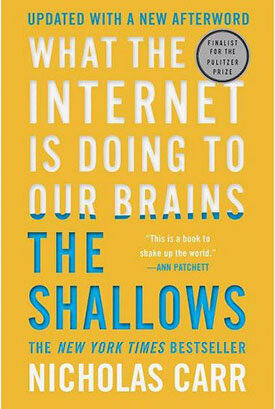“Map” by Jasper Johns (1961), courtesy of MoMA.
 <
<
In which Marcus Gilroy-Ware reminds us that not only are we to concern ourselves with the truth of the information we consume as social media surfers and news junkies—hoping to avoid being duped by “fake news”—but we’ve also got to tune up our essential literacy when it comes to understanding what the hell we’re reading, or looking at. In other words, proceed with caution when it comes to “the perilous status of the ‘truth’ under neoliberalism” because literacy and numeracy are on the decline, notes Gilroy-Ware, who adapts some of the arguments in what follows from his new book, After the Fact, The Truth About Fake News (Repeater Books, London, 2020). —Ed.
Marcus Gilroy-Ware
Protesters against the COVID-19 lockdowns in the US, Germany and Brazil all displayed a basic failure to understand what a pandemic is, how a virus spreads, or what the dangers of such a situation actually are. Frequently appearing from the far-right, they were typically incoherent in their reasoning and basic grasp of the problems about which they were so angry — something that often exacerbates the destructive vitriol with which their positions are expressed. But the problem is that there are a lot of forces at work to ensure that as many people as possible are unable to make sense of their political circumstances, and it would be a dangerously elitist and positivist fiction to point the finger at them and say that they are simply the stupid ones.
“The problem of literacy can and must be addressed in a way that is built on an ethic of solidarity rather than elitism.”
Instead, what I hope to show here is that while certain forms of literacy and illiteracy may vary according to proximity to power and prestige, the presence of some form of illiteracy wholly transcends those boundaries. Not only can misinformation and disinformation come just as easily “from the top”, but the problem of literacy can and must be addressed in a way that is instead built on an ethic of solidarity rather than elitism, by wanting the greatest literacy for all. Literacy is a collective, social accomplishment, not something for which individual members of the public can or should be held accountable.
The idea of literacy can function helpfully in both in the literal sense — the ability to read and write easily — and the more helpful metaphorical sense: a familiarity with the accepted analytical systems and mechanisms of how the world works in a way that makes it more difficult to believe disinformation and misinformation that are at odds with this knowledge. Literacy is a perfect metaphor precisely because the skills referred to by its literal meaning have suffered the same fate, and for similar reasons, as the broader sense of “familiarity” which I will outline below.
As far as actual literacy, in the basic sense of reading and writing, it is important that this emphasis too should not degrade into a snobby reason to correct people’s grammar instead of listening to what they have to say. But there is something telling about the fact that so-called “developed” countries that claim literacy rates near 100% feature growing levels of functional illiteracy. This decline is periodically symbolized by public gaffes involving poor spelling and grammar. For example, aficionados of 1990s US politics will recall the controversy that arose when Dan Quayle, Vice President during the single-term presidency of George H.W. Bush, misspelled “potatoe”, miscorrecting a 12-year-old who had in fact spelled it correctly. Images abound on the internet of mostly right-wing Americans and Brits holding misspelled signs such as “RESPECT ARE COUNTRY – SPEAK ENGLISH”, so much so that extensive collections of them have been collated for amusement.
When these reactionaries are unable to spell the most basic of words in a political context or articulate their beliefs with coherency, it is very easy for the critique that arises to meet them to constitute ridicule on account of their seeming lack of education. The same was true when a group of far-right protesters from the “English Defence League” held a March in the English town of Luton in 2011, seemingly in protest against Islam. One young man, interviewed by a journalist about why he was there, launched into a baffling explanation of how “muslamic infidels” want to impose “Iraqi law” on the UK and have already done so in London. The footage was later turned into an “anthem” with the man’s voice auto-tuned to “sing” his words. But however absurd people may sound, ridicule seldom if ever wins this kind of argument, and only deepens the resentment felt by those are sneered at, ridiculed and excluded. The man’s extreme prejudice is abhorrent, but it is also clear he does not know anything about the people and systems he claims to hate. There is something extremely tragic about his ignorance, and the way it has allowed him to develop opinions that not only have no basis in reality, but also evidence his profound exclusion from any relevant debates about Islam, immigration, or multiculturalism in Britain.
In the UK, the 2006 government-commissioned report Leitch Review of Skills found that “more than one third of adults do not hold the equivalent of a basic school-leaving qualification. Almost one half of UK adults (17 million) have difficulty with numbers and one seventh (5 million) are not functionally literate.”
This situation has not improved.
Why does misinformation work?
 <
<
More recently, as the Guardian reported of the documentary film H Is For Harry, as many as nine million adults in the UK are functionally illiterate — 13% of the population. Similarly, data from the OECD in 2013 showed that more than 17% of the US population was at or below Level 1 — the most basic level of literacy skills. Unlike the broader forms of literacy and illiteracy that I’ll outline below, research suggests that actual illiteracy not only has a profound socioeconomic impact on people, but is tied to other forms of social deprivation and exclusion, often running in families by limiting parents’ ability to help their children learn (ibid.). Whatever one’s politics, this should only underline the importance of universal access to quality education, and the only appropriate response should be to call for these measures to be widely adopted. But even the basic form of actual illiteracy outlined here is hardly a fringe issue.
Whether, as Marshall McLuhan famously warned, the “medium is the message” is still arguable either way, but the media we use and the ways we use them certainly can be indicative of the broader changes to public literacy. The digital mediation of reading and writing may be particularly problematic, especially in so far as it indicates the potential for an even more widespread problem that is generationally demarcated, rather than economically. In March 2020, when the COVID-19 pandemic hit Britain, hashtags containing misspelled words relating to the crisis appeared in Twitter’s trending topics bar, on two separate occasions: #Convid19uk and #Panickbuying. Meanwhile, the Ukrainian-American internet startup Grammarly, whose product uses so-called “artificial intelligence” to correct people’s spelling and grammar, and whose long- standing YouTube ad campaign regularly reminded people in a cute voice as they were about to watch a video that “writing’s not that easy” before they had a chance to skip the ad, had gained almost seven million daily active users, and their free plugin for Google’s web browser Chrome had been downloaded over ten million times. […]
In his book The Shallows: What the Internet is Doing to Our Brains, Nicholas Carr described how the reduction in size and depth of media distributed over the internet and accessed under the severe pressures on our attention that had already become common were “remapping the neural circuitry” of our brains in a way that made it more difficult and less pleasurable to engage with longer or more detailed texts (2010). One does not need to adopt such a technologically determinist position to be alarmed at the ways that our relationship to digital communications technologies may be exacerbating a crisis of actual literacy, more in relation to reading than writing, that serves to obscure our relationship to crucial information relating to matters of collective wellbeing.
Our relationship to numeracy is not much better. During the U.S. 2020 race to be the Democratic Party presidential nominee, journalist Mekita Rivas claimed that since billionaire candidate Michael Bloomberg had spent over $500M of his own money on political advertising, this was enough to give everybody in the United States $1M. Rivas was way off — the actual amount that Bloomberg would have been able to give every member of the US population was less than two dollars. It’s bad mathematics, as Rivas later freely admitted, but an innocent mistake, and it’s easy to understand how one rushed journalist under pressure to command the attention and clicks of ever more fickle audiences might get momentarily confused. Much more concerning was the way that this claim was amplified by several other journalists without any attempt to use their own basic numeracy to verify it. The veteran US news anchor Brian Williams, for example, while hosting his own show on network MSNBC, actually read Rivas’s tweet out loud to viewers after it was mentioned uncritically on his show by fellow journalist Maya Gray, appearing to do the “calculation” and playfully saying to the audiences at home “don’t tell us if you’re ahead of us on the math.” When in his book We the Media journalist Dan Gillmor said of the audiences he wrote for that “my readers know more than I do,” this was probably not the dystopian state of affairs he had in mind.
Similarly, in the run-up to the 2019 UK general election, the Labour Party announced a policy whereby those earning more than £80,000 per annum or more — roughly the top 5% of earners — would be taxed slightly more. During an airing of the BBC question-and-answer current affairs programme Question Time, one member of the audience challenged the MP representing of Labour Party, Richard Burgon, by saying that Labour Party members were “liars” for saying that those earning over that figure were in the top 5%, also accusing them of conspiring to “go after” salary earners instead of billionaires because they were “easy money.” The data in this case are easily obtained from official sources: the threshold at which one would have entered Britain’s top 5% of earners was actually slightly below the figure named by Labour, at £76,800 per annum. Whatever you think of the policy itself, the numbers are completely unambiguous — this was at that time the annual income at which a person would move into the top 5% of earners, so assuming the man in question was telling the truth about his income, he was comfortably in the top 5%. Percentages are taught early in secondary schooling. But nothing Burgon could say made any difference, and his attempts to politely correct the man only met with groans from the audience. Worst of all, nothing about this exchange was enough to prompt the BBC anchor chairing the so-called “debate”, Fiona Bruce, from putting the matter to rest and ensuring the accuracy of the program. In fact, the BBC later distributed a clip of this exchange on the Twitter account connected to that program with no accompanying caveat or fact-checking whatsoever, as a result of which it received more than 2,000 retweets and nearly 10,000 “likes”. Besides the serious lapse of editorial judgment in sharing it in this way, the utter dominance in this encounter of poor numeracy skills shouted angrily over reasoned argument, and the way that these likely harmed the public’s comprehension of an important policy debate, are also essential to understanding the persistence of misinformation and disinformation that should theoretically be easy to disprove.
Literacy About the World Around Us
It should already be clear that the problem of literacy goes much further than basic reading, writing and a rudimentary grasp of numbers, and also manifests in much thicker, more politically important ways as a kind of ignorance — again, not in a pejorative sense. Whereas ignorance is the absence of knowledge or information, this sense of illiteracy is a specific kind of ignorance that relates not to information or facts, but to a deeper understanding (or lack thereof) of how the world works. Texts do not just allow us to see snapshots of the world as they are or were, but provide us with an insight as to tendencies, directions and plausibility. A person who is highly literate in the works of Shakespeare is not just familiar with the content of those works, but also with the ways Shakespeare wrote and constructed the world. A person who is literate with the social network Instagram likewise has a deeper understanding of how it functions, and is fluently able to navigate it in a nuanced and instinctive way. The same idea can be applied to how we understand the world around us, whether scientifically, politically, economically or in some other sense.
Once again, as with basic literacy, the lack of this form of literacy is a problem that affects everyone and cannot be individualized. To do so is exactly what the market-driven society we have built most wants: not only will we compete with each other, but individualized and fragmented understandings of the world are at least part of what hinders our emancipation from that society. We all need as richly-developed an understanding of the world around us as possible — a world, let us remember, that contains burning forests, nationalist leaders, pandemics, oceans full of plastic, and in which one in ten human beings does not have access to clean drinking water.
The structural denial of this literacy to one person is a deprivation to everyone, because we are dependent on each other to understand the world and respond appropriately.
As in the case of the audience member on Question Time, even when we are just talking about writing and numerical skills, these skills facilitate and support our understanding of the social and political — the words and numbers we use support a broader understanding of the world that we need in order to function and make decisions — an understanding that is sorely lacking, and seems to have deteriorated as part of the post-war story that we encountered in the first chapter. Indeed, the US political scientist Thomas E. Patterson tells us that:
“In the period after World War II, studies showed an upward trend in citizens’ awareness of public affairs. The trend line is no longer rising. Today’s citizens have a poorer understanding of some topics than even their counterparts of six decades ago, when the typical adult had only a grade- school education.”
This decline in the stan
dards of understanding is almost certainly related directly to the capacity for any form of disinformation to spread. The world in which 7% of US adults believe that chocolate milk comes from brown cows, as reported in the Washington Post, is the same world where those who criticize “cultural Marxists” have not read even a line of Karl Marx; where those who attack Islam do not know what is actually in the Qur’an or what prayers are said by Muslims; where those who assemble to “protect” a statue of Winston Churchill perform Nazi salutes while doing so; where the majority of those who attack the European Union cannot name or describe a single one of its institutions; where those who posit a flat Earth do not know (or care) what gravity is; where those who avoid vaccines or stockpile antibacterial supplies during a viral pandemic do not actually know what a virus is.
These kinds of illiteracy can manifest in incredibly serious and dangerous ways, one example being the measles outbreaks around the world that have arisen because of anti-vaccination conspiracy theories, or another being the fact that the night the United Kingdom voted to leave the European Union in 2016, thousands of people used Google to ask, “what is the EU?” and “what is Brexit?”
During the COVID-19 pandemic, those people who attacked 5G equipment and innocent broadband engineers going about their jobs in the belief that 5G was the underlying cause were largely unaware of the difference between ionizing and non-ionizing radiation — something that may sound highly technical, but is taught in the physics curriculum of most UK secondary schools. Yet when it comes to actually protecting public health, this knowledge fails to make itself useful. Anti-5G agitators recycle a lot of the same paranoia about electro-magnetic radiation from mobile phones that greeted previous generations of cellular data technology. The difference with 5G is that the antennae are much more visible in public space because the technology uses a much shorter range than previous cellular technologies, inviting more attention. The people who pushed cocaine, hydroxychloroquine, nanosilver particle toothpaste, and other false cures for COVID-19 not only obscured the harms that some of these substances could do to the body — they frequently also did so because of an aversion to vaccines that was not based on any understanding of how vaccines work.
Lest it seem like these observations are a rebuke to the unempowered majority, to which those who have been most deprived of formal education opportunities generally belong, it should be stressed that these forms of illiteracy are also common within the institutions of power. For example, in February 2015, Oklahoma Senator James Inhofe brought a snowball to the floor of the US senate in a bid to try to refute the fact that 2014 had at that time been the warmest year on record. Probably the most prominent example of this is Donald Trump, who also frequently made this claim. In January 2019, for example, as the US was battered by snowstorms and plunging temperatures, Trump even tweeted “What the hell is going on with Global Warming? Please come back fast, we need you!”
For anyone familiar with even the basics of what climate change involves, the existence of extreme cold weather does not refute the science of climate change for even a second. If anything, it adds weight to the conclusion of many climate scientists that climate change involves a more extreme climate, not just an overall warming of a few degrees. “Even in a warming climate, you still expect to get extreme and sometimes record lows occurring — they’ll just be occurring less frequently,”Andrew Dessler, a professor of atmospheric sciences at Texas A&M University, told the Washington Post.
“Reports that say that something hasn’t happened are always interesting to me, because as we know, there are known knowns; there are things we know we know. We also know there are known unknowns; that is to say we know there are some things we do not know. But there are also unknown unknowns—the ones we don’t know we don’t know. And if one looks throughout the history of our country and other free countries, it is the latter category that tends to be the difficult ones.”
These displays of staggering ignorance and illiteracy are examples of a theory that has come to be known as the Dunning-Kruger Effect — according to which, we tend to be unaware of the limitations of our own comprehension. Though this theory is quite specific in the scientific literature, it suggests a more general principle that the more limited our understanding of the world, the more likely we are to assume we have understood everything. Anyone who has ever taught in higher education will also have observed the obverse effect: those students who are most able and most thorough in their work are frequently the ones who are most likely to question themselves. Part of what good teachers try to instil is the balance between having confidence in one’s ideas and critical distance from them. But this struggle takes place against a backdrop outside the classroom in which everything is always being simplified and reduced.
French philosopher Jean Baudrillard called this tendency to simplify everything while we try and make meaning out of it “negentropy” (short for “negative entropy”), a concept borrowed from physics he mentions in his book Simulacra and Simulation. Whereas “entropy” is the tendency for a system to degrade into chaotic randomness, “negentropy” is the tendency for a noisy, chaotic system to reduce into increasingly simple terms. For information, this means reductive either-or arguments, lost nuance, fixed systems of unworkable categories, and false causality.
In some ways, this tendency is a response to the ironic fact that despite all the distortions of what we can collectively know about the world, we are awash with useless information. There is an additional irony in the fact that while low literacy about complex issues and systems may lead us to struggle to understand them due a deficit, it also negatively impacts our ability to deal with a large amount of conflicting information, as the Italian chemist Ugo Bardi has argued, calling the strategic use of this dysfunction “unpropaganda“.
Breaking through paywalls isn’t child’s play. <
<
There is also an urgent issue with the actual availability of the kinds of information that could otherwise help publics to be more informed: the eye-watering price tags and aggressive paywalls that accompany even temporary access to a single peer-reviewed academic journal article. To access a single, standard article in the academic journal Cyberpsychology, Behavior, and Social Networking, for example, costs $59 at the time of writing. Enough to feed several people. The journalist George Monbiot wrote in 2011 of the ways that, as he put it, academic publishers “make Rupert Murdoch look like a socialist.” Scientific and other professionally-produced knowledge, where it has not been produced by a think tank, often takes place at universities, which are publicly funded, particularly in Europe. But publishers often charge those same universities, and that same public, exorbitant amounts to actually access research for which they have already paid once. Monbiot gives the figure of nearly $21,000 as the price of accessing a single journal published by Elsevier, the world’s largest publisher of academic research. But in 2019 the University of California decided not to renew a subscription worth $10M with the same company. Academic research as it is currently practised has numerous problems — not least the primacy of these journals and the competitive overproduction of articles to fill them, many of which will have very few readers, but if there is any shred of intellectual value in the work that scientists and other academics publish in journals — and to be clear, there absolutely is — should this not be available to everyone, instead of being enclosed and privatized by a small minority? As I argued in Chapter Five of my book After the Fact, The Truth About Fake News, this is similar to the debates that are happening about journalism, the difference being that the public has not already subsidized the production of that journalism.
Overall, illiteracy is a complex and multifaceted problem and it is simplistic at best to make firm cause/effect statements about exactly which kinds of illiteracy are most productive of the overall crisis of politically-useful information and knowledge analyzed here. But over the last few decades, as our society has been reconfigured around the priorities of markets, our literacy has undeniably changed too, and as populations make collective mistakes that are critical to their collective wellbeing, such as the inability to address climate change, or the embrace of nationalism in response to global capital flows, the question has to be raised as to whether a public would espouse the same ideas and political outcomes if formalized knowledge about the basics of physics or chemistry in the first case, or European history in the second, were made a higher priority.
Quantitative studies that have examined the relationship between levels of education tend to find that more educated individuals are less Eurosceptic. In the context of Brexit however, this was not quite so clear cut, and individuals from a wide range of educational backgrounds showed support for leaving the European Union, probably because the leave vote was made up of a confluence of voters with different reasons for wanting the same outcome. This should be a reminder that no matter how badly we want to point at our political opponents and produce a world of right and wrong, correct and incorrect, public conversations take place in a much more slippery environment in which there may well be concrete facts or formalized knowledge, but there are also an inordinate number of other factors complicating the assumptions and references on which those conversations depend.
As far as how literacy in the sense I’ve outlined here relates to the market-driven society, my argument is not that the market-driven society deliberately produces illiteracy in this broader, non-literal sense. Rather, it is more along the lines of the distinction that bell hooks articulates in the context of education, which can be thought of as a difference between “education as the practice of freedom and education that merely strives to reinforce domination.” This distinction can be applied not only to pedagogy but to the broader way we think about what knowledge is supposed to be. Knowledge can be passive or active; dead or alive; hold you back, or set you free.
For decades, we heard encomia to the “knowledge economy” and the “information society”, but literacy in the substantive sense that is discussed here is not particularly valuable in the marketplace, as evident in the devaluing of humanities or arts education at the expense of MBAs and STEM subjects, and the focus on buzzwords like “enterprise” and “innovation” in universities, rather than on fostering a deep or emancipatory understanding of the world. In a society in which education and knowledge are only valued for narrow, market purposes and the broader value in understanding the world is regarded pejoratively, the market-driven society benefits from the forms of illiteracy I have outlined above far too much to make their alleviation a priority. Such literacy would only lead to the market-driven society being challenged more openly and more often! It also benefits from widespread illiteracy about capital which the market is of course disincentivized from ameliorating or reversing.
Ultimately, as far as misinformation and disinformation, the point about illiteracy in both its literal and figurative sense is not that it is necessarily a driver, but that it represents a serious vulnerability for the societies where it exists. Firstly, those societies are left wholly unprepared to deal with the vast amount of misinformation and disinformation to which they are exposed, often by the market-driven society, and secondly, they are less able to challenge and fix that society itself. The remarkable creativity and ingenuity of human beings need not decline for our ability to comprehend and challenge the systems that govern how we live to deteriorate.
<




 <
<



